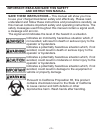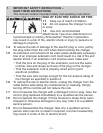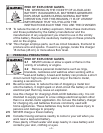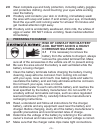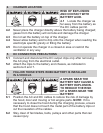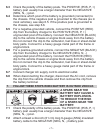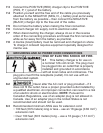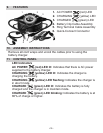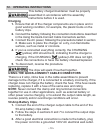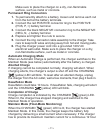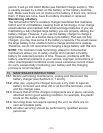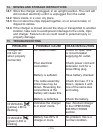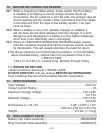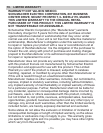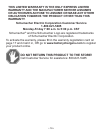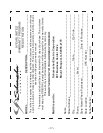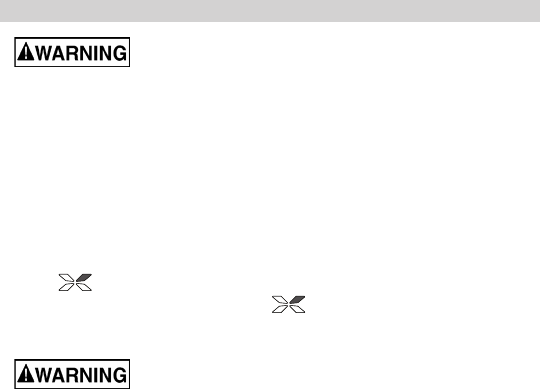
• 10 •
12. OPERATING INSTRUCTIONS
This battery charger/maintainer must be properly
assembled in accordance with the assembly
instructions before it is used.
Charging
1. Ensure that all of the charger components are in place and in
good working condition, for example, the plastic boots on the
battery clips.
2. Connect the battery, following the connection instructions described
in the Using the Quick-Connect Cable Connectors section.
3. Connect the AC power, following the precautions listed in section
8. Make sure to place the charger on a dry, non-ammable
surface, such as metal or concrete.
4. If you’ve connected everything correctly, the CHARGING
(yellow) LED should be lit, indicating that the charger is
charging. If the CHARGING (yellow) LED does not light,
check the connections or have the battery checked/replaced.
5. To disconnect, reverse the procedure.
The clips will spark if touched together.
USING THE QUICK-CONNECT CABLE CONNECTORS
There is a 2 amp, inline fuse in the cable assemblies to prevent
damage to the charger, if it is connected to a battery incorrectly. If the
charger does not charge the battery, check the fuse. If the fuse needs
replacing, replace it with a fuse of the same size and rating.
NOTE: Never connect the clamp and ring terminal connectors
together for use in other applications, such as external battery or
other power source charging, or to extend the output cable length, as
reverse polarity and/or overcharge conditions will occur.
50 Amp Battery Clips
1. Connect the end of the charger output cable to the end of the
50-amp battery clips cable.
2. Follow the steps in sections 6 and 7 to connect the output clips
to the battery.
3. After a good electrical connection is made to the battery, plug
the power cord into a grounded 120V AC electrical wall outlet.



